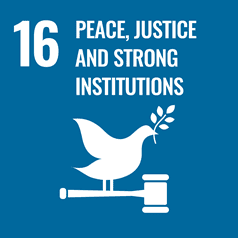$1m awarded to Purai Global Indigenous History Centre for research championing the value of truth telling
Two separate projects, one with the Department of Education (DoE), the other an ARC Discovery grant will engage in Indigenous histories from Indigenous perspectives with a view to advancing reconciliation and build meaningful connections across Australia.

The first project, Truth Telling: A History of Australian Indigenous Education by the NSW Department of Education will use culturally-responsive research practices and methodologies to explore what the department has done in the past and what needs to be done now and into the future.
The second project, From Ngukurr to Newcastle: Indigenous advocacy, activism, networks and influence, 1960s–present, focuses on and builds upon the 1960s legacy of Indigenous activist and Ngukurr man, Dexter Daniels to explore the unexpected linkages between Newcastle and Ngukurr community, a remote Aboriginal community in Southeast Arnhem Land.
Lead investigators and Co-directors of Purai Global Indigenous History Centre Dr Ray Kelly and Professor Kate Senior said that they were ambitious but very exciting projects.
“It has the potential to open up healing spaces where both language and community can grow and expand,” Dr Kelly said.
Truth Telling project
The education of Indigenous Australians is a story of neglect, exclusion, segregation, assimilation and denial.
It is also a story of resilience, recovery and innovation where, for centuries, cohorts of Indigenous Australians campaigned for access to ‘white man’s school’ as well as continuing their children’s cultural education under repressive conditions.
The project reflects the department’s aspirations for a future of culturally safe educational institutions that partner with Aboriginal families and communities to promote and foster Aboriginal excellence.
Over 12 months Purai will conduct archival research and visit urban, regional and rural NSW communities to capture the experience of Indigenous Australians students through community oral history interviews and yarning circles in secondary schools.
Senior Project Officer in the department’s Reconciliation Action Plan team Luke Allan explains that this research will help create a shared understanding of the policies and practices that affected Indigenous Australians since colonisation.
“It's an opportunity to draw the line in the sand and commit to a better future where Aboriginal people are seen as equal partners and have agency in the systemic shifts that need to occur to ensure equality and equity in educational outcomes for our kids,” said Mr Allan.
The research will culminate in September 2024 with community workshops, a report and the creation of resources to be used to educate the department’s staff, students and corporate arm.
It may even inform a departmental apology or public statement.
The report will include advice to those who might wish to research their own school within the archives.
Community workshops will assist Indigenous Australians wanting to write their own family/community history and access archives.
A mini travelling exhibition showcasing state-wide results, archival documents and educational resources will also accompany the workshop.
From Ngukurr to Newcastle project
Dexter Daniels was a union activist, who supported the Gurindji (Wave Hill Walk-off) led by Vincent Lingiari to go on strike as well as working extensively with southern state unions to raise national and international awareness about Aboriginal workers’ rights and land rights.
His story provides a catalyst for exploring intercultural connections and collaborations with remote Australian Indigenous communities and how Newcastle became a hub for Indigenous activism and awareness.
Importantly, it tells the stories of Indigenous people of influence, who have been largely forgotten in Australian history.
Making these stories accessible for future generations is important because they illuminate aspects of Indigenous history and then make it accessible to future generations of community leaders.
It supports the idea, uncovered by previous research, that leadership and civic responsibility are vital determinants of health and well-being.
Stories about Dexter Daniels also show how Indigenous Australians in the 1960s formed national and international support for growing civil rights and social justice movements.
Contact
- Dr Jacqueline Wright
- Phone: + 61 2 4921 7408
- Email: jacqui.wright@newcastle.edu.au
Related news
- Healthy recognition: Dietitian earns prestigious Australian science honour
- Nine Newcastle teams secure $5.4m in ARC Discovery grants to unearth new knowledge
- Heart of the problem is short lifespan of disease prevention programs
- University of Newcastle commemorates graduate excellence
- Community collaboration takes flight in bird opera workshop
The University of Newcastle acknowledges the traditional custodians of the lands within our footprint areas: Awabakal, Darkinjung, Biripai, Worimi, Wonnarua, and Eora Nations. We also pay respect to the wisdom of our Elders past and present.


